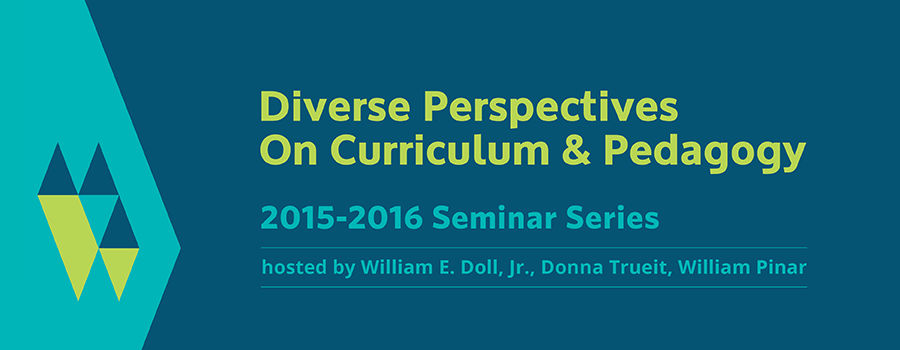Dr. Carl Leggo| Professor, LLED
Date: November 13, 2015
View poster
Abstract:
In The Force of Character and the Lasting Life James Hillman (1999) asks, “why do we live so long?” (p. xiii) He then suggests that “the last years confirm and fulfill character” (p. xiii). Hillman describes aging as “an art form” (p. xv) where the old become bearers of memories, authors of fictions, and characters in stories, their own stories and the stories of others. Hillman promotes the value of life review as “writing your life into stories” (p. 91), artfully sketching patterns for understanding our lives as part of an intricate process, “a plural complexity, a multiphasic polysemous weave” (p. 32). Hillman is especially concerned that we often “reduce the uniqueness of character to the unity of a caricature” (p. 49). With Hillman’s warning, I am eager to ruminate on a curriculum of character that avoids caricature.
My main way of ruminating, investigating, and questioning is to write poetry. In the process of writing poetry I slow down and linger with memories and experiences and emotions. In all my writing, I am seeking ways to live with wellness. I am steeped in Ted Aoki’s (2005) call for “the lived curriculum” which he described as “the more poetic, phenomenological and hermeneutic discourse in which life is embodied in the very stories and languages people speak and live” (p. 207). Aoki promoted an understanding of curriculum and pedagogy as a multiplicity of lines of movement (p. 207). I am encouraged by Aoki’s resolve that “what seems urgent is the recovery of the fullness of language” (p. 238).
We need poetry because poets engage with Aoki’s (2005) “playful singing in the midst of life” (p. 282). Poets are always attending to the alphabet, grammar, spelling, music, and imagery, as well as the keen intersections of the mind, heart, imagination, and memory. As Jane Hirshfield (1997) claims, poetry brings “new spiritual and emotional and ethical understandings, new ways of seeing, new tools of knowledge” (p. 79). In poetry I seek new ways of knowing and being and becoming.
References
Aoki, T. (2005). Curriculum in a new key: The collected works of Ted T. Aoki. W. F.
Pinar & R. L. Irwin (Eds.). Mahwah, NJ: Lawrence Erlbaum.
Hillman, J. (1999). The force of character and the lasting life. New York, NY: Ballantine
Books.
Hirshfield, J. (1997). Nine gates: Entering the mind of poetry. New York, NY: Harper Perennial.
Bio:
Carl Leggo is a poet and professor in the Department of Language and Literacy Education at UBC. His research interests include: curriculum studies, life writing, a/r/tography, narrative inquiry, poetic inquiry, creative writing, contemplative practices, and arts-based research. His books include: Growing Up Perpendicular on the Side of a Hill; Come-By-Chance; Teaching to Wonder: Responding to Poetry in the Secondary Classroom; Lifewriting as Literary Métissage and an Ethos for Our Times (co-authored with Erika Hasebe-Ludt and Cynthia Chambers); and Sailing in a Concrete Boat. Integral to his current creative and academic life, Carl Leggo is a happy grandfather to four darling granddaughters with the magical names: Madeleine, Mirabelle, Gwenoviere, and Alexandria.
